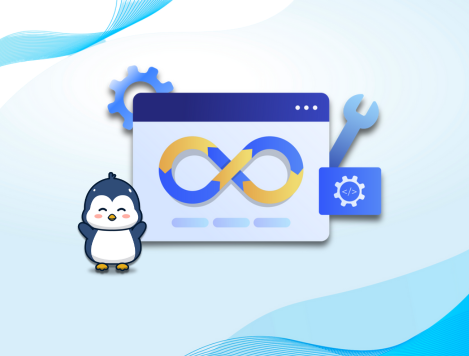Linux for DevOps: Essential Linux Knowledge for Cloud and DevOps Engineer

Welcome to the "Linux for DevOps" course! In the fast-paced world of DevOps, proficiency in Linux is not just a skill but a necessity.
Whether you are new to Linux or looking to deepen your skills, this course will guide you through essential concepts, command-line operations, and system administration tasks that form the backbone of Linux in the DevOps world.
You'll start with the basics, break down the command line (it's not as scary as it sounds!), and dive into the essential tools you need. Whether you're a complete beginner or just looking to level up your skills, we've got you covered.
No techy language, no unnecessary fluff—just practical learning that you can apply right away. Let's make Linux your friend!
⏳ Time to complete: Approx. 16 hours
📋 Prerequisite: None
🗒️ Type: Primarily text-based course
What will you learn?
You'll learn the following essential Linux knowledge in this course:
- Getting Started with Linux
- Linux Directory Tree
- Working with File Editors
- Copying, Moving and deleting Files
- Piping and I/O Redirection
- Analyzing and Manipulating Files
- Managing Users and Groups
- Managing Files and Directories Permissions
- Managing Sudo Permissions
- Basic Linux Networking
- Configuring Linux Firewall
- Managing Processes
- Managing Softwares and Repositories
- Managing Disks and Partitions
- Archiving and Compressing Files
- Task Automation with Cron
Who is your instructor?
Abdullah Tarek

Seasoned DevOps Engineer with a specialization in the Cloud and a deep understanding of DevOps practices. With years of experience, Abdullah has successfully trained and mentored individuals, guiding them through the intricacies of this field.
Ahmed Alkabary

DevOps Engineer by day and Linux educator by night. Ahmed has written best-selling books like Learn Linux Quickly and Learn Ansible Quickly. He has also created several online courses on Bash, Docker, Ansible and many more DevOps tools.
How to use this course?

Throughout this course, you will gain practical skills through hands-on exercises, and real-world scenarios.
The best approach here would be to follow the instructions and commands on your Linux system installed in a virtual machine.
By the end, you'll have the knowledge and confidence to navigate, administrate, and automate Linux systems, making you a more effective DevOps professional.
Without further ado, Let's dive in!
Passionate DevOps Engineer with a specialization in the Cloud and a deep understanding of DevOps practices.

